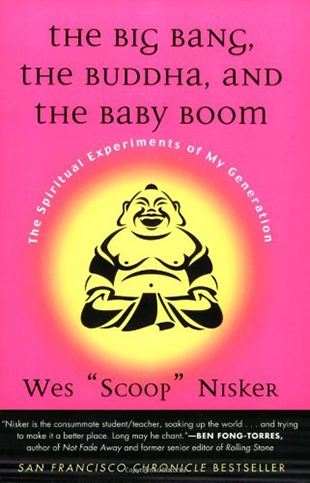A memoir recommended for those who are nostalgic for the wild experimentation of the 1960s and the ardent idealism of youth and would like to have a jaunty trip down memory lane.
In this jaunty memoir, Wes "Scoop" Nisker (Crazy Wisdom) takes us on a phantasmagorical tour of his spiritual adventures over the years as a long-time broadcast journalist. Born December 22, 1942, in Nebraska, he was raised as a Jew and always had an interest in big questions: "We grew up in a society where God was being doubted, truth itself was being disproven, and salvation kept changing its brand name." Nisker says that his first guru was Alfred E. Neuman of Mad Magazine. He felt connected to the youth culture that came alive in the 1950s with rebel James Dean on the screen and rock-and-roll on the radio. The author lionized Beat poets and writers — Jack Kerouac, Gary Snyder, and Allen Ginsberg. Nisker also fed his discontent with the status quo with the sarcasm of his favorite comedians — Sid Caesar, Ernie Kovacs, Lenny Bruce, and Mort Sahl.
The author was in the heart of things as a newscaster on a San Francisco counterculture radio station during the blooming of the 1960s hippie era with its emphasis upon flower power and love. Nisker notes: "I left home and joined a generation." He went to Asia to sample cosmic consciousness and meet various gurus. There he attended his first meditation retreat in 1970. To this day, Nisker finds solace in this spiritual practice next to an altar filled with Indian deities. With the kind of clever humor that crops up throughout the book, he says of them: "None of them has a green card to work in America."
Nisker covers the spiritual renaissance of the 1980s and its close connection to the environmental movement. He appreciates the links between physics and mysticism and ends with a fantasy that one day the U.S. will resign as a superpower and declare itself the "world's first intentional decline-and-fall." Nisker's wry sense of humor is his strong suit on this trip down memory lane. His memoir will appeal mainly to aging hippies and others nostalgic for the wild experimentation of the 1960s and the ardent idealism of youth who thought they could change the world.
